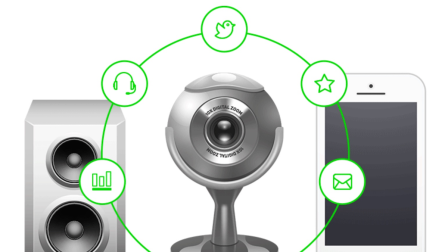AI-powered Revuze enters US market to help brands figure out what’s bothering customers
The Israel-based company says its ‘brand health indicator’ tool doesn’t need the hand-holding required by other customer analysis platforms.
Customers have an endless supply of opinions about your products and services, and marketers are eager to boil them down into useful insights.
This need has led to a variety of sophisticated tools, including text/sentiment analysis from Lexalytics, “voice of the customer” analysis like Medallia, predictive analysis in Quantifind, contextual analysis from BehaviorMatrix or customer intelligence provider Clarabridge.
Now, another platform is entering the US market, with the promise that its neural networks and machine learning is smarter and more useful than the others.
Revuze — a Netanya, Israel-based firm with offices in New York City and, soon, San Francisco — describes its tool as a “brand health indicator.” It pulls in qualitative data from thousands of brand and third-party sources, including social media, customer surveys, website behavior, e-commerce activity and comments and emails to customer service.
The platform then analyzes all that customer data to determine, say, that the volume control on your latest smartphone model is hard to use.
While a variety of other tools can also yield such insights, Revuze Co-Founder and CEO Ido Ramati told me that a key differentiator for Revuze is that the brand doesn’t have to hand-hold the process.
In other words, instead of setting the tool to look for comments about volume control on this particular model, the brand just lets Revuze find out what concerns are rising to the top. There’s a one-time Q&A session, but no definitions of keywords, rules or topics, and no setting of sentiment value.
The system learns what is most important as the brand selects the results in several rounds that deliver lists of discussion topics and related data. Ramati says a key difference from, say, sentiment analysis is that the Revuze platform doesn’t require that humans sift the results to determine which feedback is good or bad, as the system learns what matters.
A cell phone manufacturer, for instance, might otherwise need a team of analysts to sift through analytical results in order to find that customers are unhappy with a particular model’s battery life, Ramati said, while Revuze’s engine “knows how to figure that out, [to pick] what customers care about.”
The results can then be grouped by industry to provide a benchmark comparing feedback from competitors’ customers, or they can be grouped by the brand and the specific product model. Once the insights rise to the top, the brand can then choose to use them to improve a product design or a service — or not.
Ramati said that an unnamed global fast food client was receiving about a million customer surveys every month but couldn’t properly analyze them because of the complexity and volume. Revuze’s platform was called in, and he said it surfaced the top customer complaints about the speed of service and portion size in specific restaurants.
Founded in 2013, Revuze beta-tested the platform last year, and issued a release version by year’s end. The company said it has been employed by a variety of Fortune 500 brands in consumer product goods (CPG), food service, leisure and manufacturing but declined to name them.
Along with the US launch, the company is announcing a $4-million seed round from investors that include research firm Nielsen’s tech incubator Innovate.
Marketing Land – Internet Marketing News, Strategies & Tips
(23)





